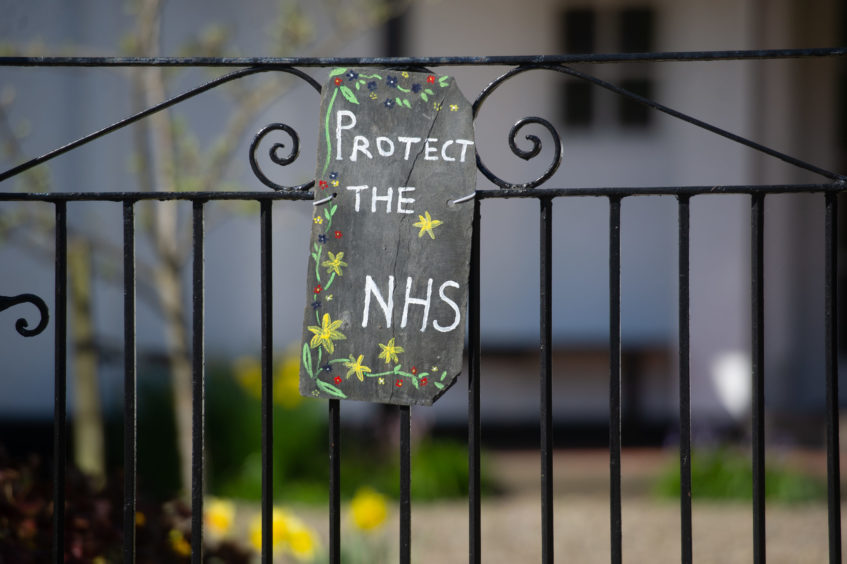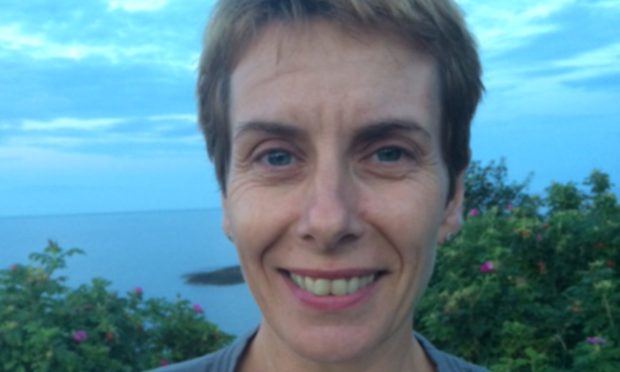Finding ways to “decompress” will be vital to helping a health workforce “on its knees” move forward, according to a north-east NHS boss.
Jillian Evans, the head of health intelligence at NHS Grampian, said planning is well under way for how people can progress past the pandemic and its “series of work-related shocks”.
“It’s been tiring – emotionally and physically – for all health and social care staff,” she said.
“It has been a really emotional journey and we can see they’re exhausted.
“When people talked about it being a marathon and not a sprint, they weren’t kidding – and it’s more like an ultra-marathon now.
“I don’t think people really foresaw how long this situation would last.”
Workplace changes led to isolation
Teams from across the health and social care spectrum have been flat-out since Covid-19 arrived in the UK at the start of last year.
Ms Evans said that, while many immediately think of doctors and nurses tending to patients in the wards, the sudden changes to the workforce have been much more significant.
“There are a lot of people who’ve had to take up very different roles and positions, working in different ways – and that really does affect their wellbeing,” she added.
“This has been a really shocking time for everyone.
“A lot of people have moved jobs and that really has been a challenge.
“In the first wave, lots of people were taken away from their normal areas to where they were most needed.
“People felt separated and isolated so it was really important they had good communication with their old team and the new.”
How are staff being helped?

Last year NHS Grampian opened a Psychological Resilience Hub for staff and residents in the north-east and Orkney.
Led by a team of senior psychologists, it offers telephone and video-call appointments to offer mental health first aid and support.
It is hoped that the initiative will continue, and chiefs are looking at other ways to supplement this further.
Ms Evans said: “We are thinking of the next stage of recovery, as we move from the very intense and busy periods of winter to what the next might look like.
“How can we put in place good, tried and tested processes that help staff decompress?
“We have lots of processes that we use in normal clinical practice, so there will be more of that.
“It’s about providing people time in a safe, supportive environment to consider work-related issues, learning from our successes, problem solving, and thinking about alternative ways to deal with the pressures.”
She added: “For some people, these pressures are multi-faceted because there will be things in their lives not just to do with work – home schooling, maybe their partner has been ill, or someone in their family has died.
“We carry this all round with us, so we need this time to take stock.”
‘Basic human kindness’ is key
An internal survey of NHS Grampian staff found an “overwhelming” number felt interaction with their colleagues was the most important factor in getting them through the day.
And Ms Evans said this “wasn’t a surprise”.
“There are practical things people do when they work as a team, covering each other on holidays,” she said.
“But colleagues are there for emotional support and the chat they can have over a break or lunch is really important and can keep you going.
We’ve noticed a lot of staff have felt a strong sense of reward too, and a sense of pride in the NHS and what they’ve been able to do.”
“It’s not anything amazing, or any sort of magic bullet – it’s just about basic human kindness and being there for one another.”
She added: “We’ve learned a lot of lessons about what’s important to people and what seems to work.
“We’ve noticed a lot of staff have felt a strong sense of reward too, and a sense of pride in the NHS and what they’ve been able to do.
“Hopefully we’re starting to see things improve.”
